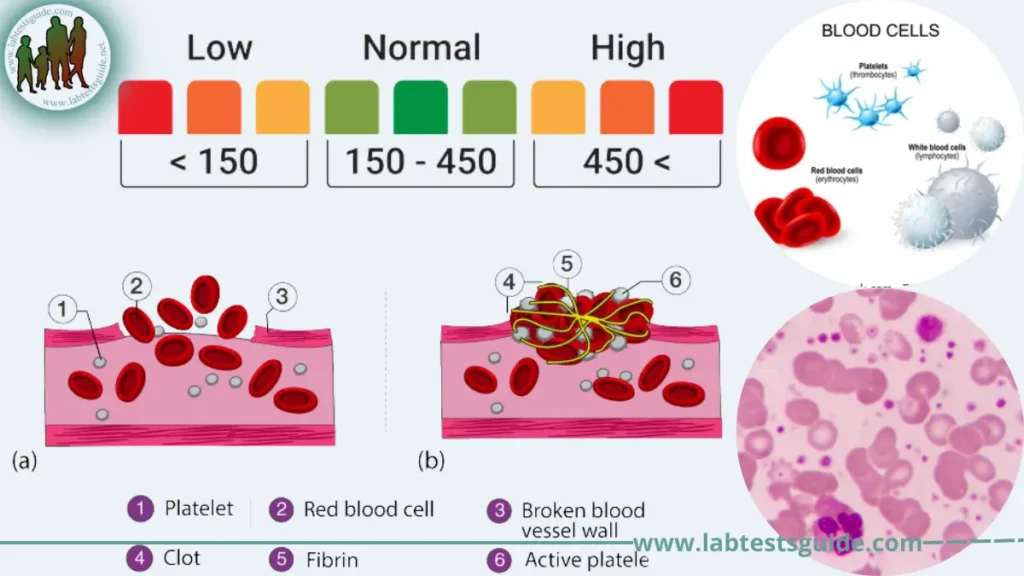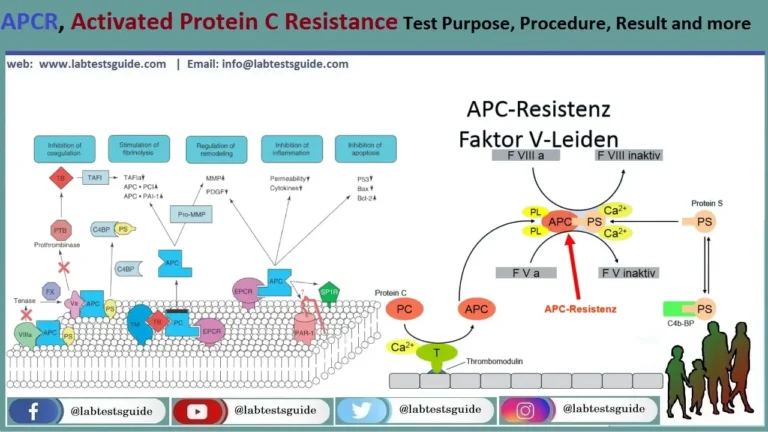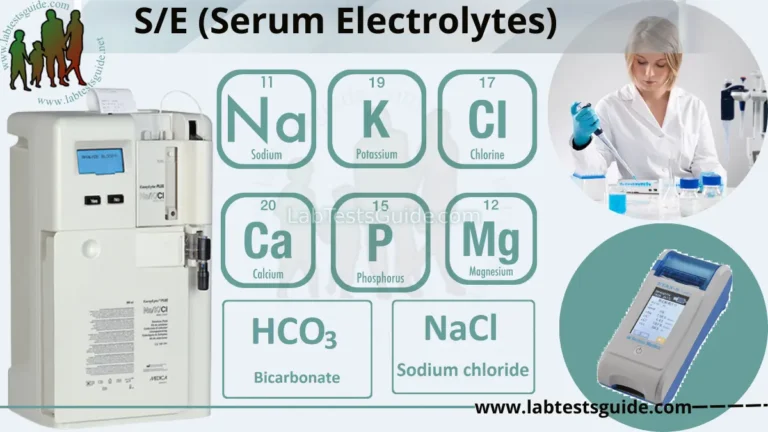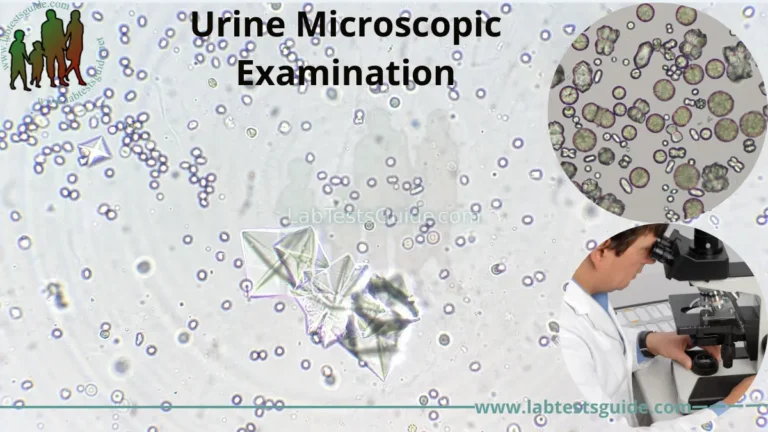Platelets Test Purpose, Procedure, Result Interpretation and Your Test Result Meaning
Platelets, also known as thrombocytes, are small, colorless, irregularly-shaped blood cells that play a crucial role in the process of blood clotting (hemostasis). They are produced in the bone marrow and circulate in the blood.

Also Known As: Thrombocyte Count, PLT, Platelet Distribution Width, PDW, Mean Platelet Volume, MPV
Test Panel: Hemoglobin, Red Blood Cells (RBC), HCT, MCV, MCH, MCHC, Platelets Count, White Blood Cells (WBC), DLC, ESR
Understand Your Test Results:
Understand your Platelets Test Results
AI-powered Lab Test Results Meaning tool 🤖
Why Get Tested:
- To diagnose the cause of petechial hemorrhage in the skin.
- To find the cause of spontaneous bleeding.
- In women with heavy menses.
- This is advised in a patient on chemotherapy.
- This is advised in case of bone marrow failure.
- Platelets count is of value in thrombocytopenia seen in:
- Uremia.
- Liver diseases.
- malignancies.
When to Get Tested:
- As part of a routine complete blood count (CBC).
- When you have episodes of unexplained or prolonged bleeding.
- When you have symptoms that may be due to a platelet disorder.
Sample Required:
- This can be done on EDTA blood.
- This is stable for 5 hours at 23 °C and 24 hours at 4 °C.
- Can take capillary blood and make a direct dilution, this sample is stable for 3 hours.
- Fetal blood is collected from the umbilical area percutaneous.
- The platelets can be assessed on the DLC slide.
Referance Ranges:
| Test Name | Male | Female |
| Platelets Count | 150 – 450 x 109 /l | 150 – 450 x 109 /l |
Critical value
- The patient may develop spontaneous bleeding when the count is < 20,000 /cmm.
- Platelets counts > 50,000 /cmm usually show no bleeding.
Causes of thrombocytopenia or Decreased platelets:
- Idiopathic thrombocytopenia ITP.
- Hypersplenism.
- Anemias like pernicious, aplastic and hemolytic.
- After a massive blood transfusion
- Infection like viral, and bacterial,
- Chemotherapy treatment.
- HIV infection.
- Leukemias, carcinoma, and myelofibrosis. This is due to the infiltration of the bone marrow.
- D I C.
- Toxemia of pregnancy, eclampsia.
- Antiplatelets antibody.
- Renal failure.
- Inherited diseases like Wiskott-Aldrich syndrome.
- An autoimmune disease like systemic lupus erythematosus
Thrombocytosis or increased platelets:
- malignant tumors like leukemia, and lymphoma,
- Polycythemia vera.
- Splenectomy.
- Iron deficiency anemia.
- Autoimmune diseases like Rheumatoid arthritis, and SLE.
- Hodgkin’s lymphoma
- Chronic pancreatitis, and inflammatory bowel disease.
- Tuberculosis.
Understand Your Test Results:
Understand your Platelets Test Results
AI-powered Lab Test Results Meaning tool 🤖





